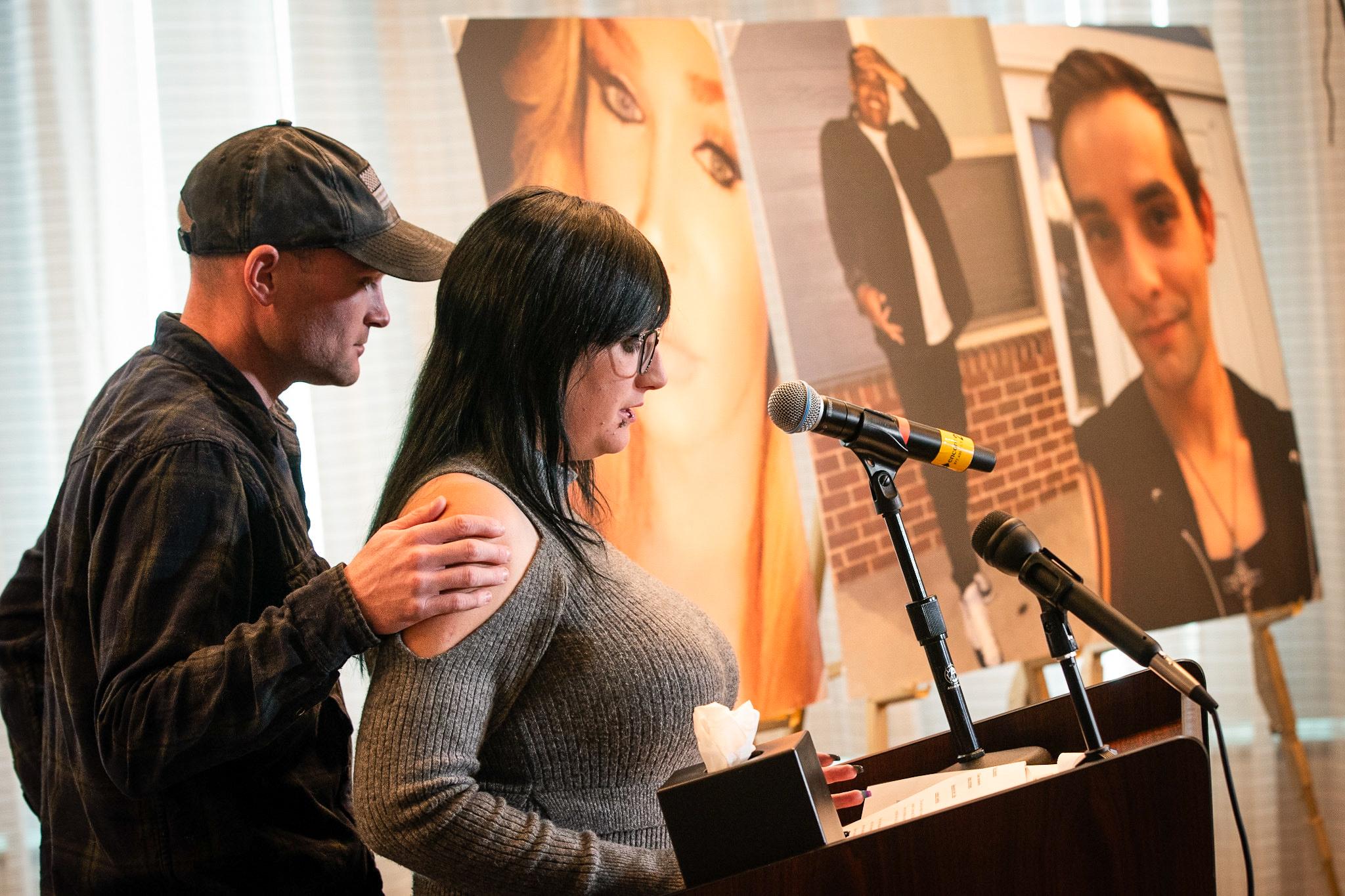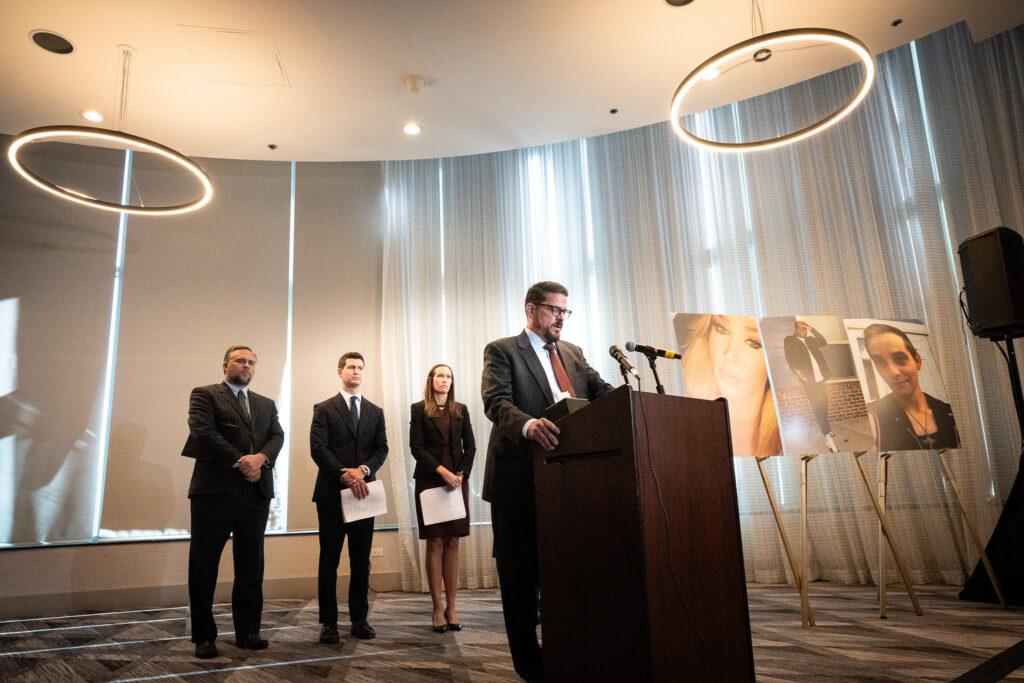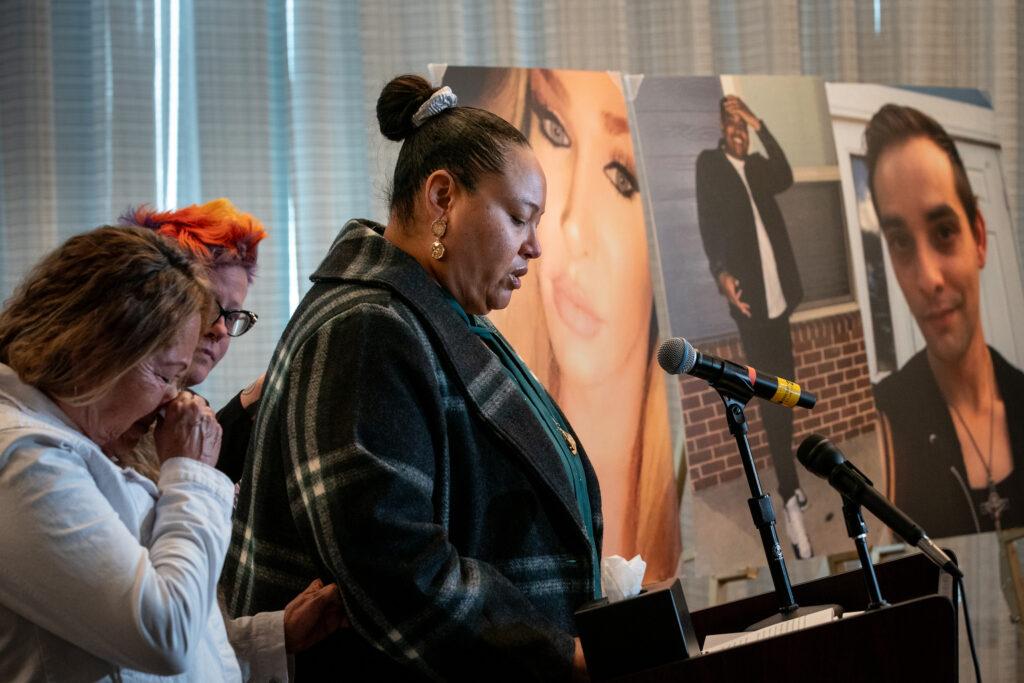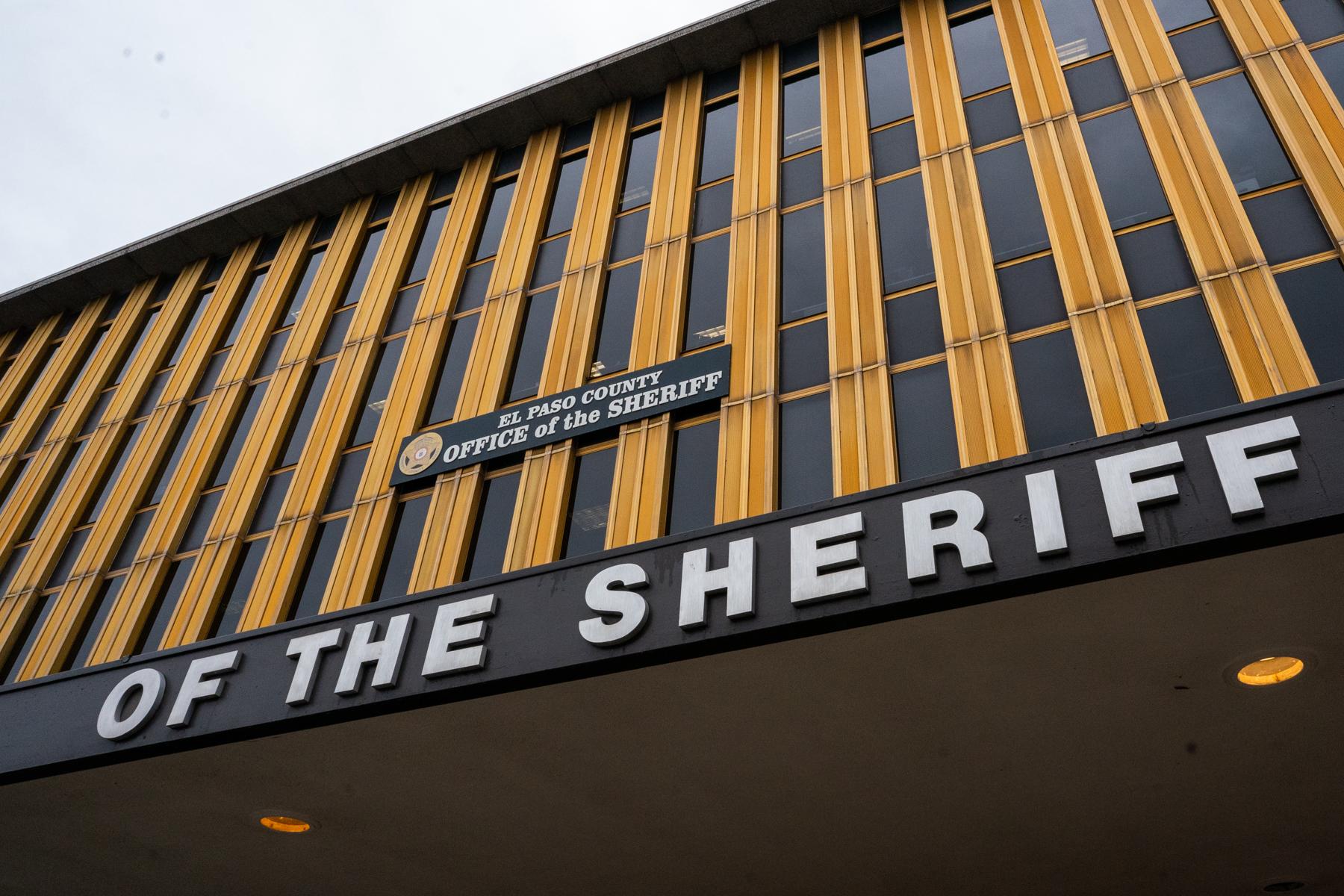
Updated: 2:34p
Survivors and family members of those killed in the 2022 mass shooting at Club Q in Colorado Springs have filed two lawsuits against the El Paso County Sheriff's Office and others, alleging that they could have prevented the shooting.
The lawsuits were filed over the weekend — two days before the two-year anniversary of the attack at the LGBTQIA+ venue.
Those killed in the shooting were Raymond Green Vance, Kelly Loving, Daniel Aston, Derrick Rump and Ashley Paugh.
The lawsuits were filed in U.S. District Court. Barret Hudson, who still has three bullets in his body from the shooting, filed one; while a second was filed by families of the deceased.
“The case that has been filed on Mr. Hudson's behalf cannot make him whole,” his attorney, Matthew Schneider, said at a press conference Tuesday morning. “It cannot make him into the person he was prior to the shooting.
“Our hope is that it can be an instrument to affect much needed change within our community and society. The claims Mr. Hudson brings in this case largely mirror those of the other victims.”
Attorneys representing the families for the second lawsuit told reporters that the families are not pursuing the case for monetary damages or compensation, but rather for “justice and systemic reform.”
Colorado's red flag gun law forms the basis for the suits.
The lawsuits highlight the El Paso County commissioners’ and former sheriff Bill Elder’s decisions not to use the state’s red flag law. The commissioners repeatedly opposed the implementation of the state’s red flag law, and the sheriff’s office declined to make use of it against the Club Q shooter.
The suits say that the law should have applied to the shooter, Anderson Aldrich, after an arrest in 2021 for allegedly kidnapping and threatening Aldrich’s own grandparents, during which Aldrich reportedly expressed intentions to become a “mass killer.” The red flag law may have helped temporarily remove firearms from Aldrich’s possession, and possibly prevented Aldrich from making future purchases.
The shooter has since pleaded guilty to the five murders and 46 attempted murders at Club Q, receiving a life sentence in 2023, and later pleaded guilty to federal hate crimes, which added 55 life terms.
The El Paso County Commissioner’s office told the CPR News that it would not comment on pending litigation.

Previously, the sheriff's office argued that the red flag law would have been “redundant” in this instance, given Aldrich was put under another order following the 2021 arrest, which also temporarily banned Aldrich from having guns. However, that order was dropped when the case was dismissed.
District Attorney Michael Allen said that case was dismissed, properly, "because the witnesses were not cooperating with the prosecution.”
“We demand that government entities enforce existing laws, like the red flag law, to prevent similar tragedies,” Sarah Raisch, one of the attorneys representing the victims' families, said Tuesday.
Timothy Lytton, a law professor at Georgia State University who studies gun regulations and liability, said this case is not clear cut. He said Colorado law gives public officials a certain amount of discretion. However, “it might be the case that there would be liability exposure on the part of the officials and perhaps even the city depending on what the city's role was or the locality's role was in not enforcing the law,” Lytton said.
Many family members and victims spoke at the press conference. Ashtin Gamblin, a survivor of the mass shooting, told reporters how she “struggles to do things that she once found enjoyable.” She was shot nine times the night of Nov. 19, 2022.
“This tragedy has forever changed my life and the lives of everyone who is here today,” Gamblin said. “There must be accountability and justice and this can never happen again. And additionally, I really think that El Paso County, everybody else needs to accept their responsibility.”
Senator Tom Sullivan, who sponsored Colorado’s red flag law after his son died in the 2012 mass shooting at an Aurora movie theater, said lawsuits are one way to ensure elected officials uphold laws put in place by legislation. He also cited fines and incarceration as ways he hopes to compel officials to comply.
“Any legislation that you pass is only as good as those who are elected or in this case hired to enforce it,” Sullivan said.
The club's owners are also named in the lawsuits.
In addition to arguing that authorities should have tried to use the red flag law, the lawsuits accuse Club Q’s owners of neglecting security measures at the venue “despite the increased awareness for greater security at LGBTQIA+ nightclubs.”

“We call on private entities, including LGBTQIA+ venues, to implement robust security protocols that prioritize the safety of their patrons,” Raisch said.
The lawsuits claim that in the years prior to the shooting, Club Q cut its security staff from five employees — including an armed guard — to a single worker who was also tasked with other duties at the club, like serving food to patrons.
But in response, Club Q’s owners said that the accusations against the venue "are false and completely inaccurate and will be rigorously defended."
The statement to CPR News continued, "The blame for this tragedy does not lie with those who were impacted but with Anderson Aldrich, the shooter and a system that enables easy access to weapons of war. Out of respect for the legal process and all those affected, we will address these matters in the appropriate venue."
CPR's Kiara DeMare contributed reporting.








